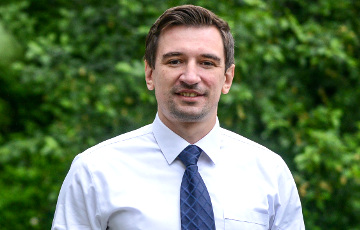Economist: Authorities Live Off Fines
29- Uladzimir Kavalkin, onliner.by
- 20.06.2016, 9:47
- 12,677

PHOTO: ONLINER.BY
Inspectors struggle for getting as much fines as possible from the wrongdoers instead of prevention of violations.
A very weird consistent pattern exists in our country: the more often our authorities deny existence of collecting fines plans, the more they talk about cutting down the number of inspections, the faster the budget revenues grow due to the mentioned fines. Does this seem a paradox?
From the first sight it really does seem a paradox. Just look: last week, the official website of the State Control Committee published two coordinative plans of the control and supervision activity for the second half a year of 2016. Thus, according to these plans, the number of inspections should decrease by 13.5%, but no one abolished the plans for budget incomes coming from fines: they are supposed to grow by 37% this year compared to the last year (if you have any doubts, just study the republican budget item “fines” for last year and this year).
The practice of planning fines has existed in Belarus for a long time and it is secured on the legislative level. The starting point of the process is including the plan for incomes coming from fines into the republican and the local budgets, then it gets approved by the deputies of different levels and then the plan is sent down to the heads of the city traffic police, the Ministry for Emergency Situations’ departments, the sanitary stations, the tax inspectorates and other bodies which are authorized to punish. Business unions offered the Ministry of Finance to stop such practice and cut the item “fines” from the budget revenues, but they always got a refusal. The position of the Ministry of Finance looks understandable, on the one hand: the money obtained from fines make a separate source of budget revenues, and the budget needs to be planned one way or another. Meanwhile, without concrete figures, it is impossible to reconcile revenues and expenses. On the other hand, the very existence of the plans on fines raises questions to the character of activity of the people who would conduct inspections. What will they fight for? For prevention of violations, or for charging as many fines as possible on the wrongdoers?
As a result, the following situation occurred in the last years: in the conditions of annual decrease of the number of inspections, the plans on fines not only grow but significantly exceed. If we don’t take into account the years 2011-2013, when the budgeting dynamics had been deviated by the base fee growth from BR 35K to Br 100K, and the scope of fines are based on it, then we see that the fines plans were exceeded approximately by 20% annually.
Furthermore, both absolute and relative indicators of collection of fines are growing. For example, in 2009, the revenues of the republican budget coming from fines were planned in the amount of Br 28.5 billion, the actual inspection collected Br 30.8 billion, that is, the plan was exceeded by 8%. The share of fines in budget revenues was tiny and made only 0,07%.
Meanwhile, in 2016 the Ministry of Finance plans to raise Br 1.18 trillion of fines which is 41.5 times more than in 2009. The share of revenues from fines, although it remained insignificant, has increased by 9 times and amounted to 0.65% compared to 2009.
In general, the picture on fines in 2016 looks very interesting: with the base fee increase by only 16%, the national budget revenues from fines should grow by 37%. And all this should happen on the background of reducing the number of inspections by 13.5%! Accordingly, the plans can be fulfilled only at the cost of more fines of bigger amount.
Uladzimir Kavalkin, onliner.by








